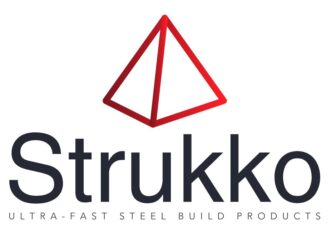
Strukko Light Gauge Steel Frame test
A Strukko light gauge steel framing is considered to be fireproof for several reasons, primarily due to the inherent properties of steel and the way it performs under high temperatures. Here are the detailed reasons:
1. Non-combustibility
Strukko Light Gauge Steel is a non-combustible material, meaning it does not ignite or contribute to the spread of fire. Unlike wood, which can burn and add fuel to the fire, steel will not catch fire. This property alone significantly enhances the fire resistance of a light gauge steel frame.
2. High Melting Point
Strukko Light Gauge Steel frames have a high melting point, approximately 1370°C (2500°F). In typical building fires, temperatures usually range from 800°C to 1000°C (1472°F to 1832°F). Since steel does not reach its melting point at these temperatures, it maintains its structural integrity longer than many other materials.
3. Structural Stability Under Heat
While a Strukko steel frame can lose some strength at high temperatures, it does not fail as quickly as other materials. In well-designed light gauge steel frames, additional measures such as fire-resistant coatings and assemblies can be used to protect the steel and maintain its strength under fire conditions. Fire-resistive designs often include fire-rated gypsum board component structures or intumescent paints that swell when exposed to heat, can provide an insulating layer that helps protect the steel.
4. Predictable Performance
Strukko Steel’s performance in a fire is predictable, which is crucial for designing fire-resistant structures. Engineers can anticipate how steel will behave under fire conditions and design accordingly, using additional protective measures where necessary. This predictability allows for accurate modeling and planning to ensure that the steel frame will hold up for a specific period during a fire, providing valuable time for evacuation and firefighting efforts.
5. Fire Rating and Building Codes
Strukko Light gauge steel framing systems are often tested and rated for fire resistance according to stringent building codes and standards in various panel make-ups. These ratings ensure that the framing system can withstand fire for a specified duration, which is sufficient to meet UK building fire safety requirements. The fire rating is achieved through a combination of the steel’s inherent properties and additional fire-protective measures.
6. Minimal Thermal Deformation
Although Strukko Light Gauge Steel Frames expand when heated, they are designed to accommodate this expansion without compromising the overall structural integrity. The connections and joints in the frame are engineered to allow for some movement, reducing the risk of structural failure due to thermal deformation.
7. No Contribution to Smoke or Toxic Gases
In a fire, Strukko light gauge steel does not produce smoke or toxic gases, which are significant hazards in building fires. This characteristic enhances the safety of occupants, as smoke inhalation is a leading cause of death in fires. The absence of combustible materials in the framing reduces the overall fire load and the potential for toxic smoke.
Conclusion
The combination of steel’s non-combustibility, high melting point, predictable behavior under heat, structural stability, and compliance with fire ratings makes Strukko light gauge steel frames highly fireproof. These factors collectively ensure that buildings constructed with light gauge steel frames are safer and more resilient in the event of a fire.


